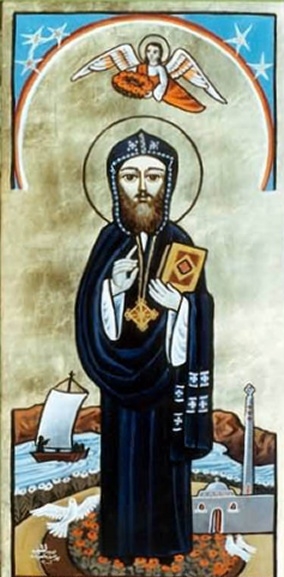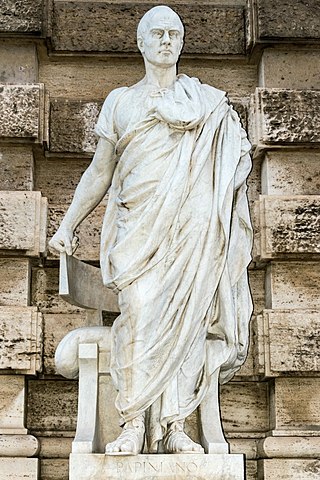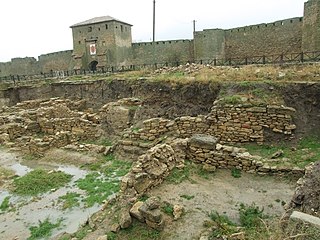Related Research Articles

Marcus Aurelius Severus Alexander, also known as Alexander Severus, was a Roman emperor, who reigned from 222 until 235. He was the last emperor from the Severan dynasty. He succeeded his slain cousin Elagabalus in 222. Alexander himself was eventually assassinated, and his death marked the beginning of the events of the Crisis of the Third Century, which included nearly fifty years of civil war, foreign invasion, and the collapse of the monetary economy.

The Severan dynasty was an Ancient Roman imperial dynasty that ruled the Roman Empire between 193 and 235, during the Roman imperial period. The dynasty was founded by the emperor Septimius Severus, who rose to power after the Year of the Five Emperors as the victor of the civil war of 193–197, and his wife, Julia Domna. After the short reigns and assassinations of their two sons, Caracalla and Geta, who succeeded their father in the government of the empire, Julia Domna's relatives themselves assumed power by raising Elagabalus and then Severus Alexander to the imperial office.

Severus the Great of Antioch, also known as Severus of Gaza or the Crown of Syrians, was the Patriarch of Antioch, and head of the Syriac Orthodox Church, from 512 until his death in 538. He is venerated as a saint in the Oriental Orthodox Church, and his feast day is 8 February.

Sir Thomas Elyot was an English diplomat and scholar. He is best known as one of the first proponents of the use of the English language for literary purposes.

Julia Domna was Roman empress from 193 to 211 as the wife of Emperor Septimius Severus. She was the first empress of the Severan dynasty. Domna was born in Emesa in Roman Syria to an Arab family of priests of the deity Elagabalus. In 187, she married Severus, who at the time was governor of the Roman province of Gallia Lugdunensis. They had two sons, Caracalla and Geta. A civil war over the Roman throne broke out in 193, and shortly afterwards Severus declared himself emperor. The war ended in 197 with the defeat of the last of Severus's opponents.

Julia Soaemias Bassiana was a Syrian noblewoman and the mother of Roman emperor Elagabalus, who ruled over the Roman Empire from 218 to 222. She was one of his chief advisors, initially with the support and accompaniment of her mother Julia Maesa. She and her mother guided the young emperor until growing unrest and a family division led to her son's replacement by her nephew Severus Alexander. Julia Soaemias was killed along with her son by the Praetorian Guard.

Aemilius Papinianus, simply rendered as Papinian in English, was a celebrated Roman jurist, magister libellorum, attorney general and, after the death of Gaius Fulvius Plautianus in 205 CE, praetorian prefect.

Annia Aurelia Faustina was an Anatolian Roman noblewoman. She was briefly married to the Roman emperor Elagabalus in 221 and thus a Roman empress. She was Elagabalus' third wife.

Tyras was an ancient Greek city on the northern coast of the Black Sea. It was founded by colonists from Miletus, probably about 600 BC. The city was situated some 10 km from the mouth of the Tyras River, which is now called the Dniester. The surrounding native tribe was called the Tyragetae. The ruins of Tyras are now located in the modern city of Bilhorod-Dnistrovskyi in the Odesa Oblast of Ukraine.

Comana was a city of Cappadocia and later Cataonia. The Hittite toponym Kummanni is considered likely to refer to Comana, but the identification is not considered proven. Its ruins are at the modern Turkish village of Şarköy, Tufanbeyli district, Adana Province.

Alexander of Jerusalem was a third century bishop who is venerated as a martyr and saint by the Eastern Orthodox Church, Oriental Orthodox churches, and the Roman Catholic Church. He died during the persecution of Emperor Decius.
Julius Paulus, often simply referred to as Paul in English, was one of the most influential and distinguished Roman jurists. He was also a praetorian prefect under the Roman Emperor Alexander Severus.

Philip II, also known as Philip the Younger, was the son and heir of the Roman emperor Philip the Arab by his wife Marcia Otacilia Severa.
Juventinus Albius Ovidius was the name of the author of thirty-five distichs titled Elegia de Philomela, containing a collection of those words which are supposed to express appropriately the sounds uttered by birds, quadrupeds, and other animals. For example:
Mus avidus mintrit, velox mustecula drindit,Et grillus grillat, desticat inde sorex.
Ovinius Camillus was allegedly a Roman usurper during the rule of Alexander Severus. Most scholars today consider him to be fictitious.
Epagathus was an Ancient Roman politician of the early third century.
Gnaeus Claudius Severus was a Roman senator and philosopher who lived in the Roman Empire during the 2nd century AD.
Tiberius Claudius Severus Proculus was a Roman Senator. Via his mother he was a grandson of Emperor Marcus Aurelius, but he played only a limited role in dynastic politics.
The gens Catilia was a Roman family of imperial times. It is best known from Lucius Catilius Severus, consul in AD 120, and subsequently praefectus urbi. He was the maternal proavus, or great-grandfather, of the emperor Marcus Aurelius. At one time he hoped to obtain the empire himself, but he was removed from his office after expressing his disapprobation at the adoption of Antoninus Pius, who had been his colleague in the consulship.
The gens Erucia was a plebeian family at Rome. Members of this gens are first mentioned early in the first century BC; the name has been claimed as Etruscan. However, in the second century of the Empire, the Erucii attained considerable distinction.
References
Citations
Bibliography
 This article incorporates text from a publication now in the public domain : William Ramsay (1870). Smith, William (ed.). Dictionary of Greek and Roman Biography and Mythology .
This article incorporates text from a publication now in the public domain : William Ramsay (1870). Smith, William (ed.). Dictionary of Greek and Roman Biography and Mythology .{{cite encyclopedia}}: Missing or empty|title=(help)